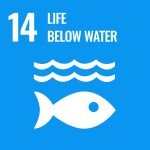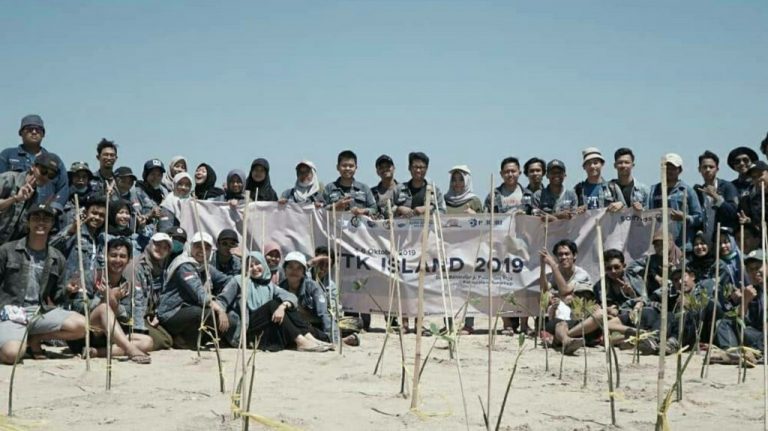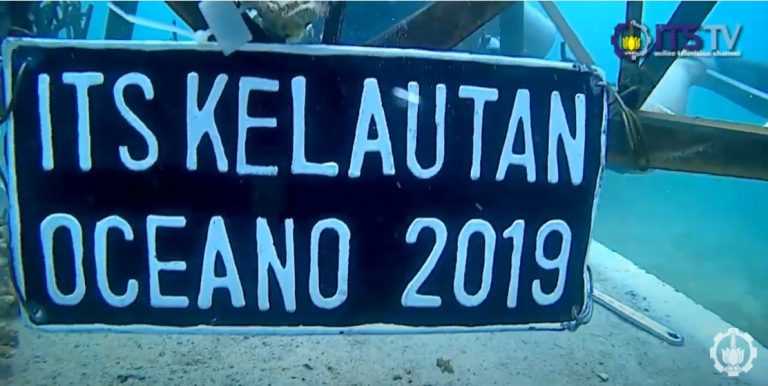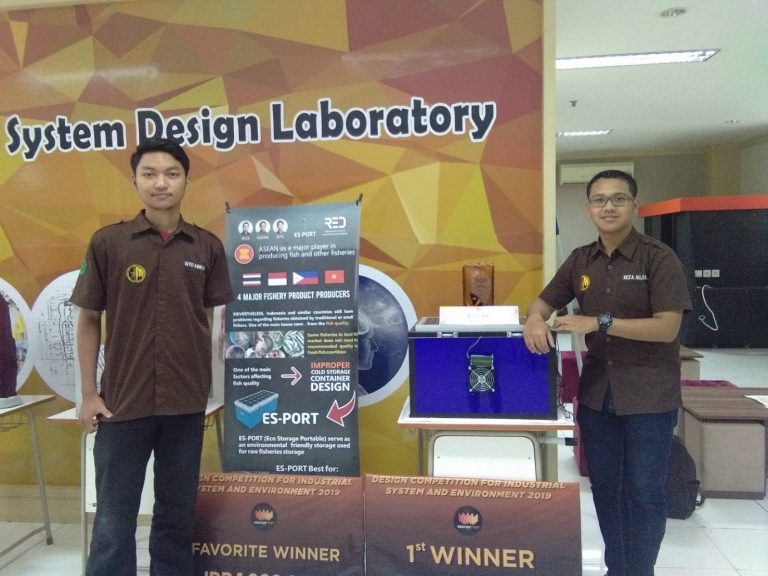“The two SDGs that look at the broader ecosystem divide it into Life Below Water, and Life on Land. The oceans, and the rivers and watersheds that link to them, are the largest part of our ecosystem. 40% of the world’s population lives within 100km of the coast, and we all rely – directly or indirectly – on the sea.”
(THE Impact Rankings)
SDG 14: LIFE BELOW WATER
Supporting Aquatic Ecosystems through Education
ITS Helps to Cultivate Clean Water by Implementing Reverse-Osmosis Membrane Process
It is still common to find a well of water containing bacteria and metal compounds, which is quite disturbing in fulfilling the needs of clean water in the community. Following up on this condition, the Community Service Team (Abmas) of ITS applied the reverse-osmosis membrane process as a method of purifying water for drinking water needs. This method will be implemented in the water treatment plans for boarding school communities.
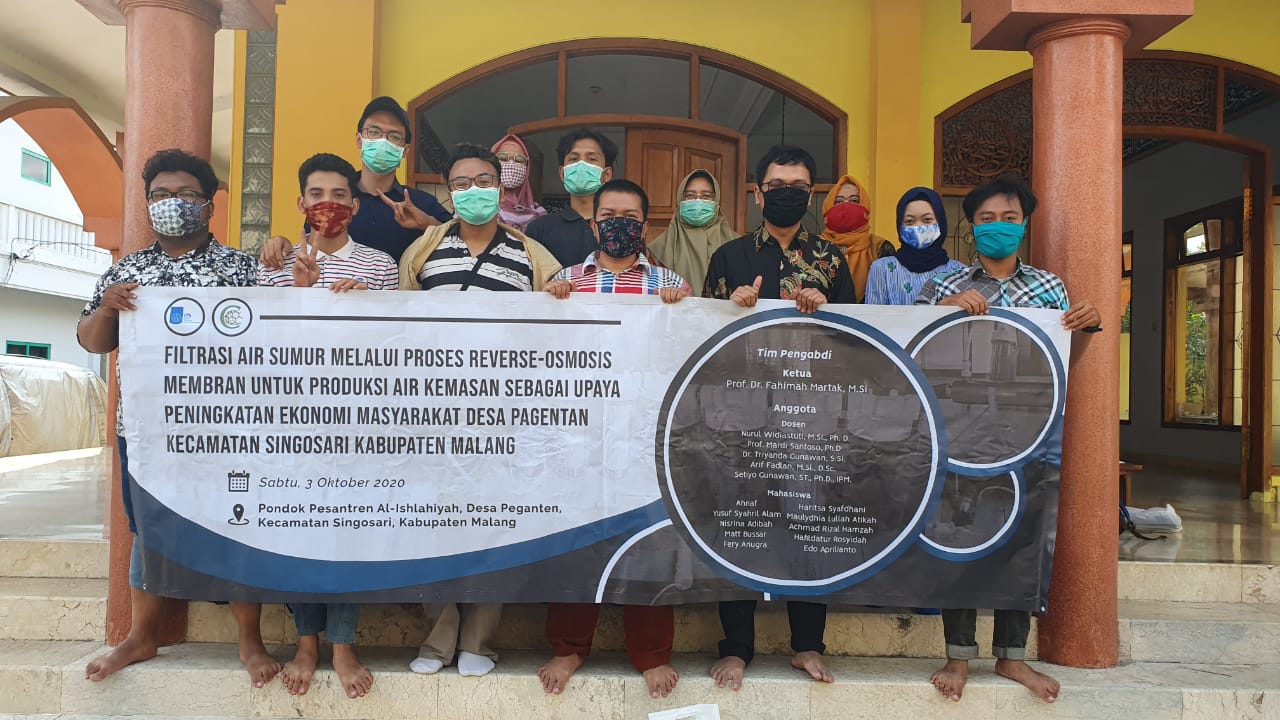
Bengawan Solo Becomes a Water Source for Residents, ITS Creates Filters from Coconut Shells
The Community Service Team (Abmas) of ITS succeeded in creating a water filter made from coconut shells. This was implemented in Sumberwudi Village, Karanggeneng District, Lamongan. This water filter will be used as an example for local communities to be able to make filters more effective independently.
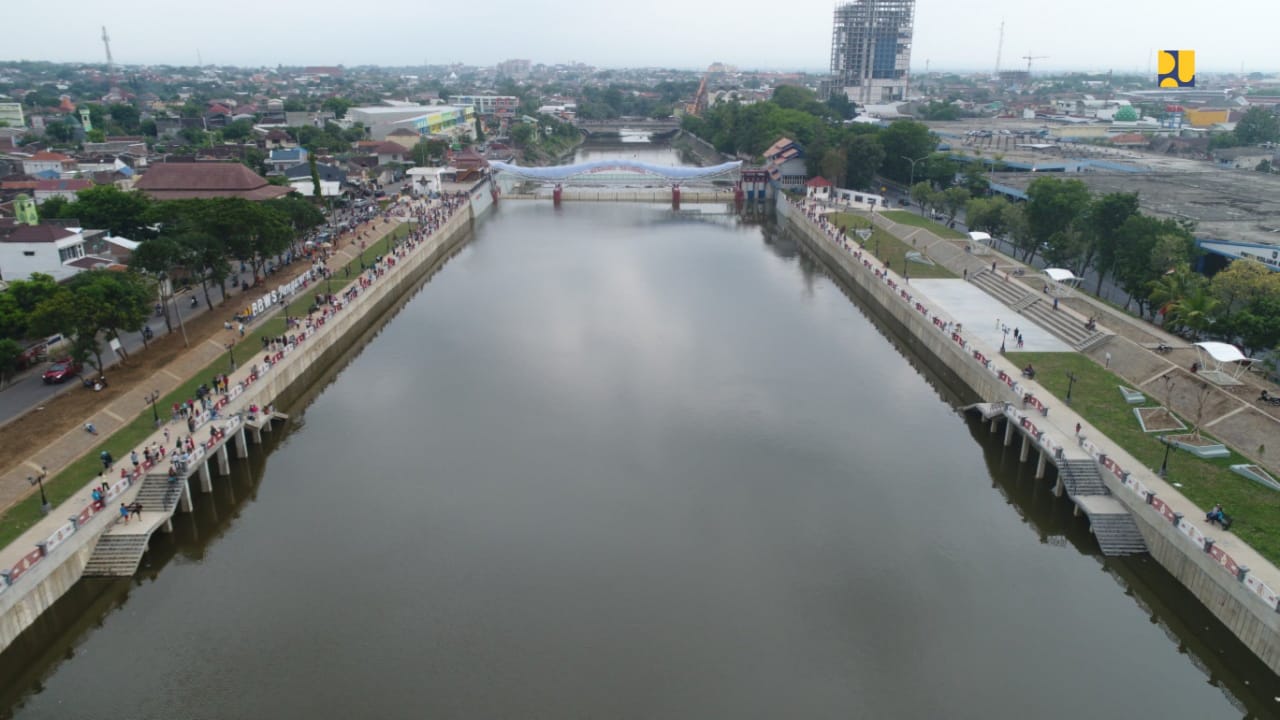
ITS Collaborates with Multi Stakeholders to Discuss Rejoso Watershed Management
The strategic function of the Rejoso Watershed as a source of clean water supply in parts of East Java (East Java) has decreased annually. In fact, in the near future, the water resources of the Rejoso watershed will be utilized to fulfill the needs of the wider East Java community. Based on such issues, ITS through the Faculty of Civil, Environmental, and Earth Engineering organized Forum Group Discussion along with the Provincial government and Rejoso Watershed Care Forum as well.
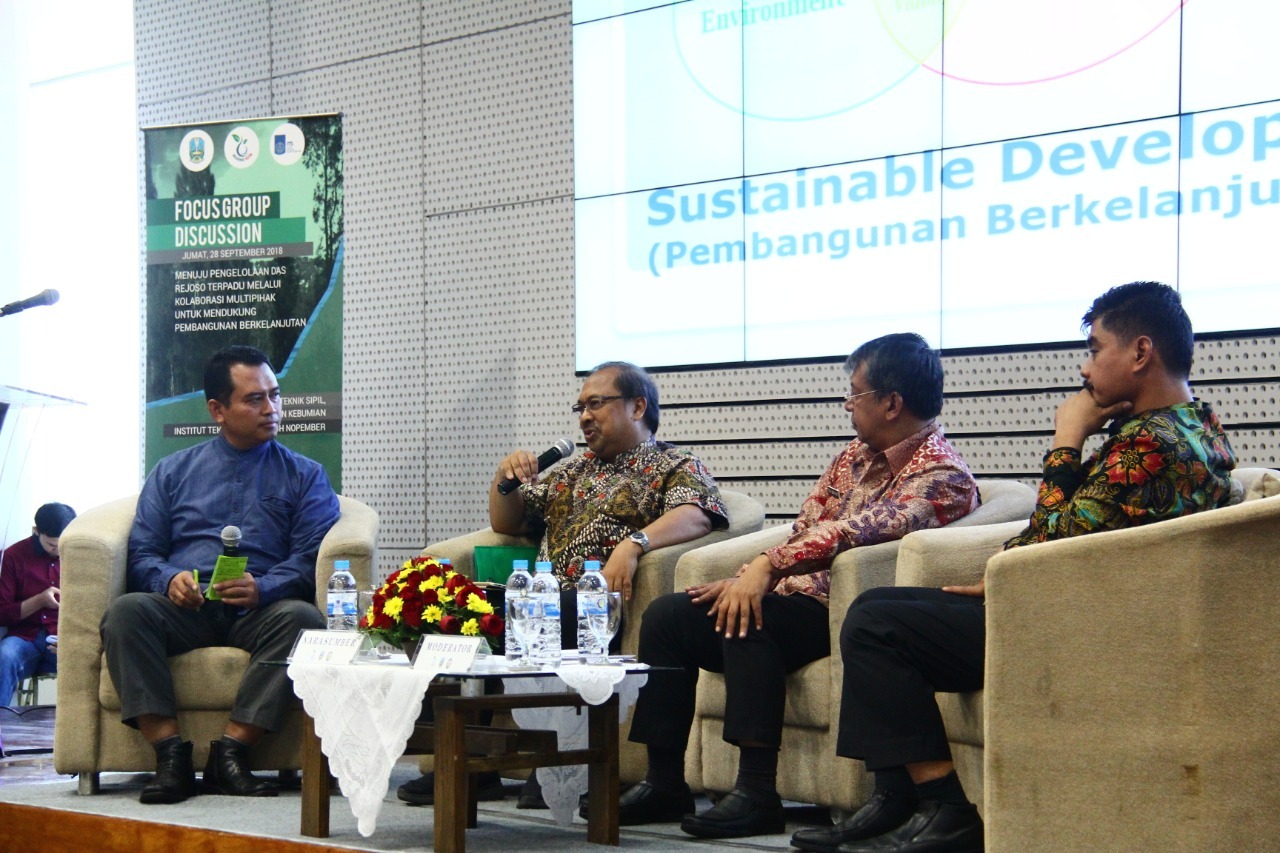
OceanFarm ITS
ITS is increasingly established as a leading maritime campus in Indonesia with various innovative steps. The Marine Engineering Department lecturer team along with the ITS Directorate of Research and Community Service (DRPM) pioneered a new breakthrough in the maritime sector in the form of the first floating marine ecotourism dual fish cultivation (aquaculture) building in Indonesia called Ocean FarmITS. This pioneering action is an answer to a solution to a decrease in the catch of fishermen around Sidoasri Bay, Malang.
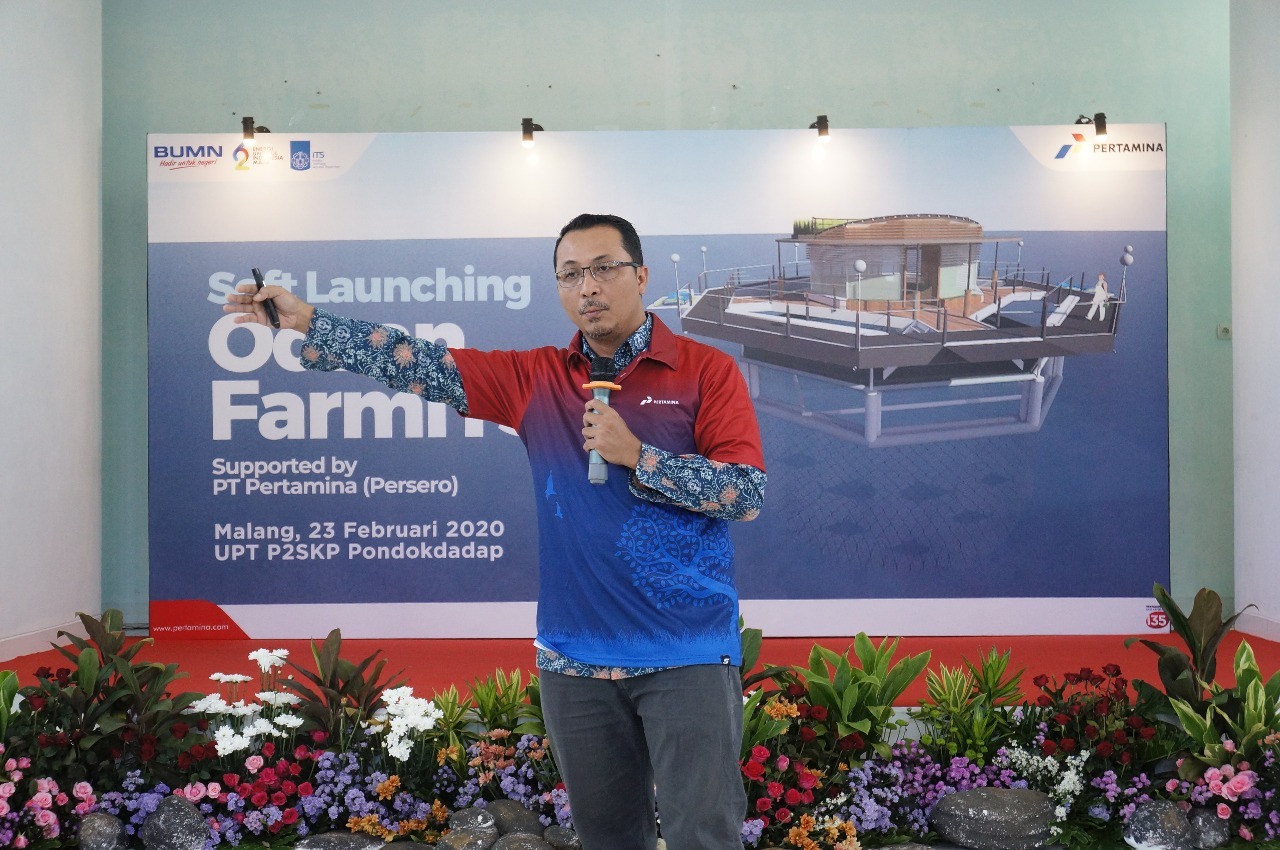
Catching Opportunity by Building Marine and Fisheries Sector Business
As a maritime country, the potential for fisheries in Indonesia cannot be doubted. With abundant resources and good management, Indonesia should be able to dominate business in the marine and fisheries sector. This geographical background inspires Ir. Didik Sudiarso and Achmad Nizam in building their business accommodated by ITS through the Directorate of Innovation and Science Technology Area (DIKST).

Our Dedication to the Nation: Engineering Physics Laboratory Assists Milkfish Farmers in Maintaining Pond Water Quality
ITS’ Engineering Physics Laboratory, Department of Engineering Physics, designed water quality monitoring tools as a result of inspiration from the idea that pond water quality plays an important role in the sustainability of milkfish cultivation. With these tools, ITS resolves problems experienced by milkfish farmers and increases their productivity.

ITS Students Invent Sensors for Detecting Illegal Fishing and Marine Disasters
Initiating a new innovation is one of the roles of students in solving problems in society. This time, innovation came from five students of ITS who sparked the idea of underwater sensor technology innovation that was applied to Indonesia’s border waters. This innovation can be a technological recommendation for the government in tackling the problem of illegal fishing.
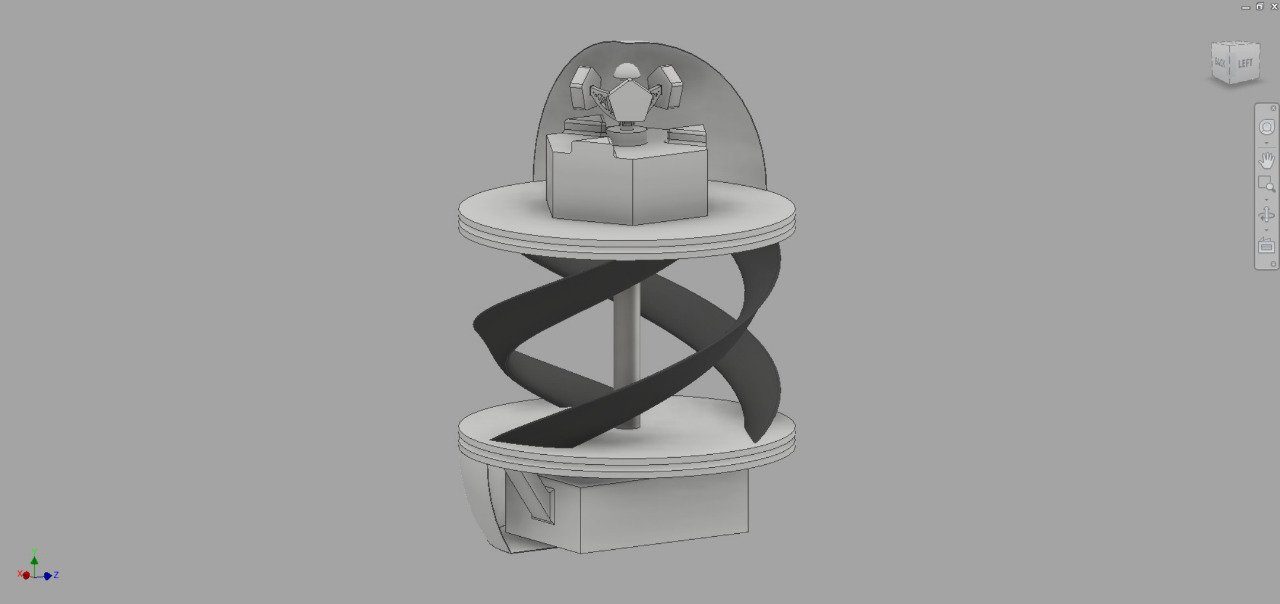
ITS Students Initiate Coastal Houses to Help Fishermen
ITS initiated a container for marine catches that guarantees an increase in the selling price of fishermen’s marine catches. The collaboration of ITS students from the Department of Marine Engineering, the Department of Information Systems, and the Department of Mathematics initiated the coastal house. This container is used to empower independently through the production house.
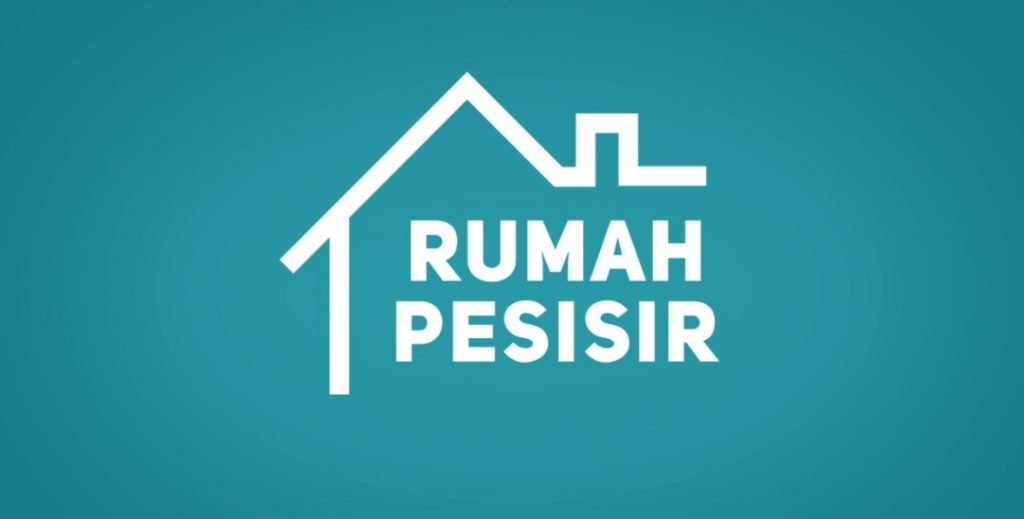


Our Dedication to the Country: ITS Students Help Surabaya Fishermen Maintain Fish Quality
With the abundance of marine fish resources owned by Indonesia, a group of students from ITS created a cooler to store solar-powered fish. By bringing an environmentally friendly concept, this product can solve the problem of the Bulak Fisherman’s Village in Surabaya to maintain the quality of the catch. This technology can be used by Indonesian, especially fishermen. The most important, fish as Indonesia’s wealth of resources is also maintained.


Supporting Aquatic Ecosystems through Action
Ocean Engineering Webinar Series
ITS’ Department of Marine Engineering, Faculty of Marine Technology, has held a webinar with the theme of Harmonizing Central, Provincial, Regency, and City Regulations in Increasing Investment in the Marine and Fisheries Sector. It discusses the regulations created at the planning and implementation level that can optimize the utilization of marine resources and can increase investment in the marine and fisheries sector. This is due to the conflicts of interest that often occur, such as in determining the boundaries of the management area, investment and utilization of resources, conflicts of authority, and licensing. All conflicts will be overcome by solutions from the experts.
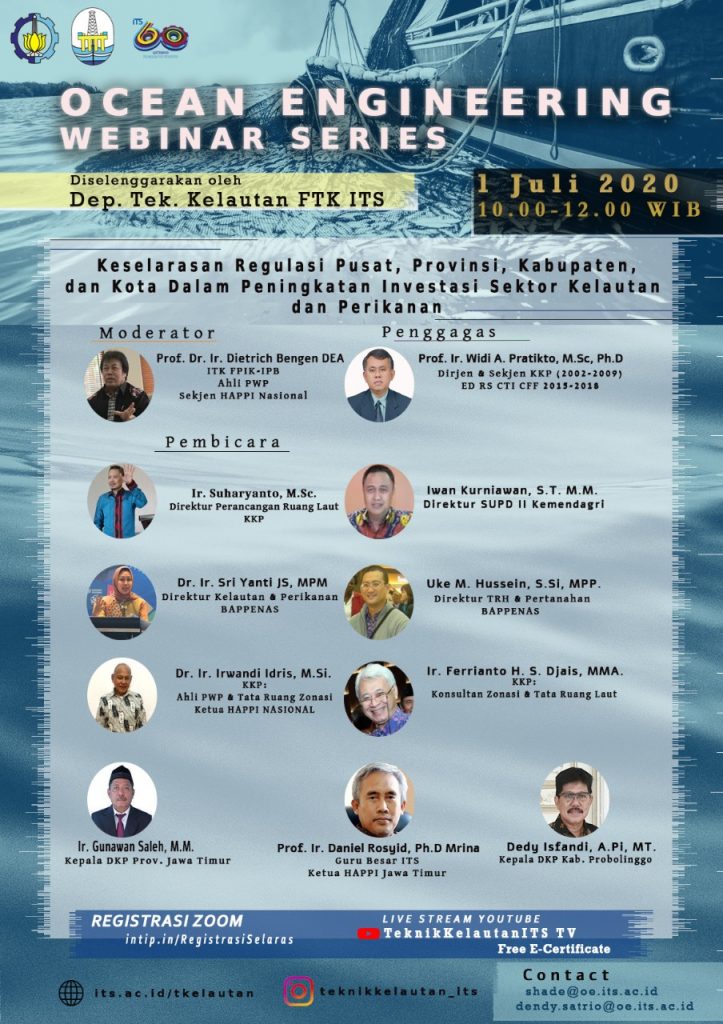

The Success of ISOCEEN 2020
ITS’ Department of Ocean Engineering and Tohoku University initiated a collaboration through creating and expanding the professional networks to foster the relationship between the University, industry, business, and communities across the country. This collaboration is also supported by the Indonesian Coastal Management Expert Association (HAPPI) and the Indonesian Coastal Engineering Expert Association (PARPI).
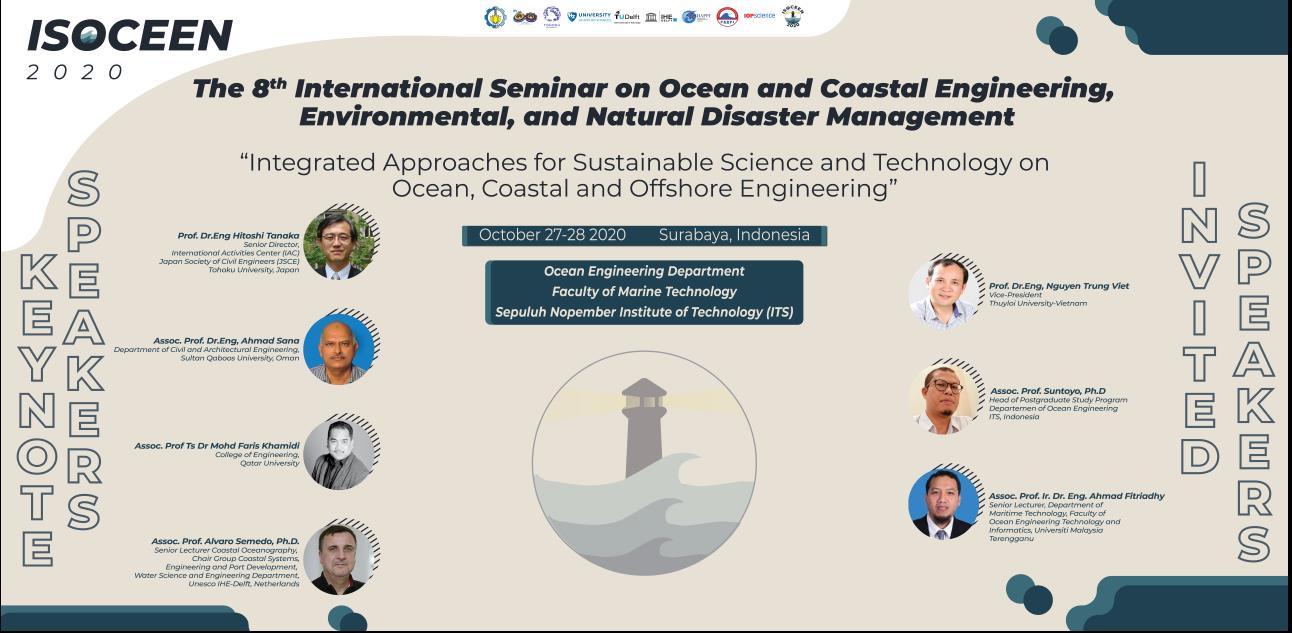

Saving Coral Reefs and Utilizing Shells and Fish Stomachs
The Conservation Bureau, in collaboration with the Ocean Engineering students of the Institut Teknologi Sepuluh Nopember (ITS), held a discussion on the preservation of marine biota. The discussion aimed to raise awareness of the importance of marine biodiversity and the role of the community in protecting it. Through this collaboration, ITS students were provided with an opportunity to gain knowledge and skills in marine conservation and contribute to the protection of marine biota.
ITS Aquatic Ecosystems
ITS Surabaya ensures that food on campus that comes from aquatic ecosystems is sustainably harvested. For this issue, ITS works closely together with the community to provide the required assistance. One of the efforts is shown on ITS students’ project entitled Rumah Pesisir, an innovation for marine catches that guarantees an increase in the selling price of fishermen’s marine catches. ITS also works in the research and innovation area for the fisheries community, one of the innovations is through Eco Storage Portable (ES-PORT), a thermoelectric fish storage.
Our Dedication to the Country: ITS Students Help Surabaya Fishermen Maintain Fish Quality
Against the backdrop of the abundant wealth of marine fish resources owned by Indonesia, a group of students from ITS created a cooler to store solar-powered fish. By bringing an environmentally friendly concept, this product can solve the problem of the Bulak Fisherman’s Village in Surabaya to maintain the quality of the catch.
ITS Students Initiate Coastal Houses to Help Fishermen
ITS initiated a container for marine catches that guarantees an increase in the selling price of fishermen’s marine catches. The collaboration of three ITS students from the Department of Marine Engineering, the Department of Information Systems, and the Department of Mathematics initiated the coastal house.



Saving Coral Reefs and Utilizing Shells and Fish Stomachs | SDG Center ITS #04
The SDG Center ITS is committed to preserving coral reefs and utilizing shells and fish stomachs as a sustainable resource. This is achieved through research and development initiatives focused on understanding the ecological and economic importance of coral reefs and utilizing shells and fish stomachs as a sustainable source of raw materials. These efforts aim to support the conservation of coral reefs and promote sustainable resource use.
OCEANO 2019 Social Development Invites Students to Preserve Coral Reefs
OCEANO 2019 Social Development, an event organized by Institut Teknologi Sepuluh Nopember (ITS) invites students to take an active role in preserving coral reefs. Through various activities, the event aims to raise awareness about the importance of coral reefs and the role of students in their conservation. The event also provides a platform for students to contribute to coral reef conservation efforts through research, volunteering and community engagement.
ITS Contingent Participates in the Release of 200 Sea Turtles at the 32nd PIMNAS
The Institut Teknologi Sepuluh Nopember (ITS) contingent participated in the release of 200 sea turtles as part of the 32nd National Student Scientific Week (PIMNAS) event. This event aimed to raise awareness about the importance of sea turtle conservation and the role of the community in protecting this endangered species. The ITS contingent actively participated in this event, demonstrating the university’s commitment to environmental conservation and sustainability.
SIRIPIKAN, Information System for Fisheries Potential by ITS Students
With a sea area of 2.3 million square kilometers, Indonesia’s marine wealth is very large. If managed properly, Indonesia can be independent in producing marine fish without the need to import from other countries. Seeing this, Sepuluh Nopember Institute of Technology (ITS) student, Alfian Bimanjaya tried to make a new breakthrough called the Fisheries Potential Information System (SIRIPIKAN) in the international competition Esri Young Scholars Award 2020.
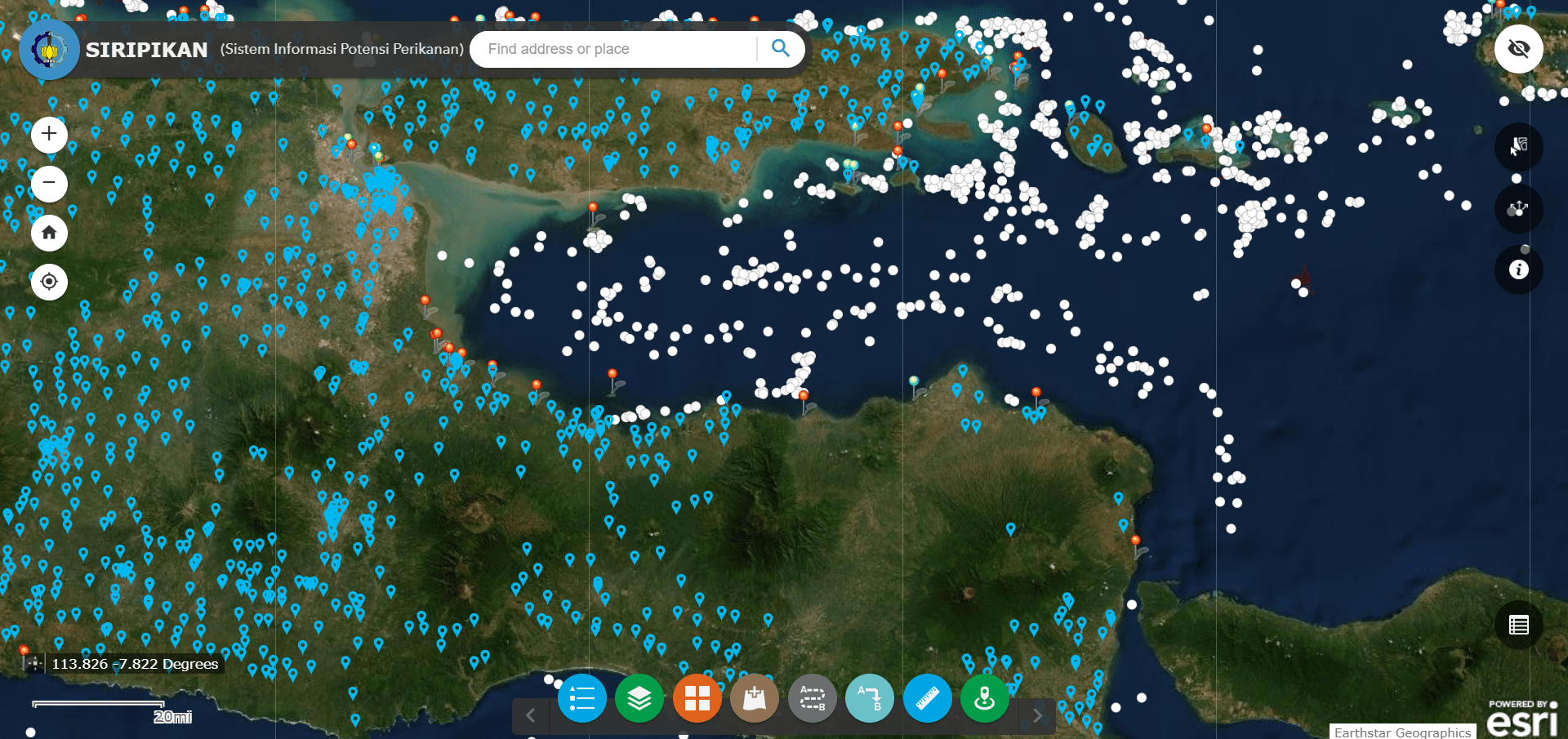

ITS Students Design IoT-Based ARISTER to Overcome River Waste
Garbage in the river that is left in excess and accumulates will certainly cause various problems. Thinking of providing a solution, the students of the Sepuluh Nopember Institute of Technology (ITS) who are members of the Student Creativity Program (PKM) team designed the Internet of Things (IoT)-based Automatic River Solid Waste Scrapper (ARISTER) which is believed to be able to help overcome the accumulation of garbage in rivers by easier.
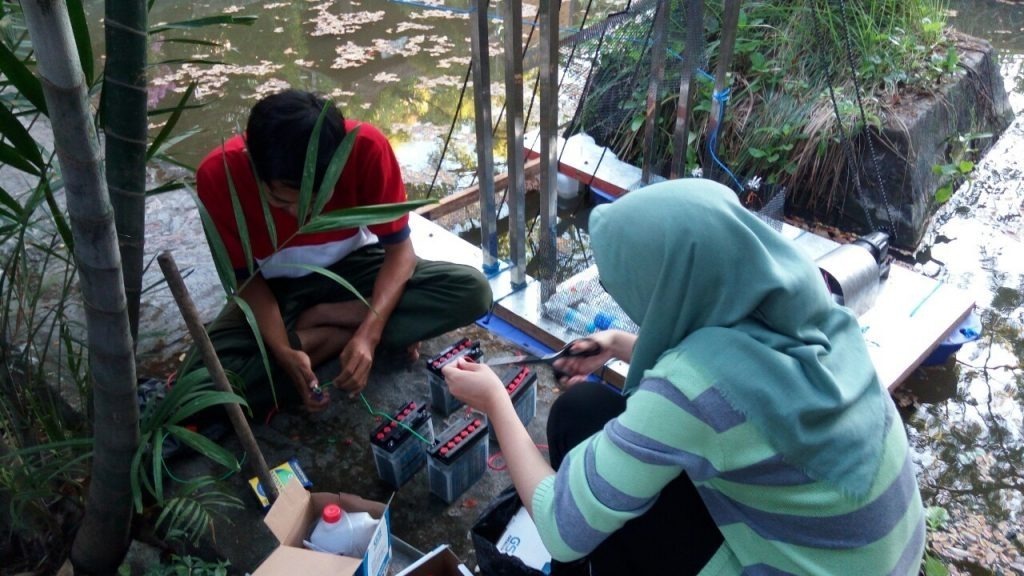

ITS Students Innovate Sensors for Detecting Illegal Fishing and Marine Disasters
Initiating a new innovation is one of the roles of students in solving problems in society. This time, innovation came from five students of the Sepuluh Nopember Institute of Technology (ITS) who came up with the idea of underwater sensor technology innovation that was applied to Indonesia’s border waters.



Water Sensitive Waste Disposal
The water discharge guidelines and standards refer to the Regulation of East Java Province No. 2 Year 2008 about Water Quality Management and Water Pollution Control in East Java Province and Regulation of Surabaya City Government No. 12 Year 2016 about Water Quality Management and Wastewater Control.
Regulation of East Java Province No. 2 Year 2008
Regulation of Surabaya City Government No. 12 Year 2016
Circular Letter of ITS Rector No. T-95007-IT2-TU.00.08-2019 concerning ITS’ Initiatives towards Sustainable and Environmental Friendly Campus
ITS promotes a university Climate Action plan, shared with local government and local community groups. The initiatives towards a sustainable and environmental friendly campus are written in the Circular Letter of ITS Rector No. T-95007-IT2-TU.00.08-2019. The university also has a Smart Eco Campus Unit to ensure the implementation of sustainable and eco campus.
Plastic pollution is threatening not only the terrestrial ecosystem but also the marine ecosystem worldwide. ITS as higher education is aware of the importance of plastic waste reduction to protect the environment. The initiatives to reduce plastic waste on campus are supported by the Circular Letter of ITS Rector No. T-95007-IT2-TU.00.08-2019 about ITS’ Initiatives towards Sustainable and Environmental Friendly Campus, specifically item A no. 6-8 (to encourage waste management on campus through reducing, reuse, and recycling). ITS also issues the Circular Letter regarding the use of disposable drinking water/bottled water and plastic bags at ITS Campus. To reduce the use of bottled water, ITS promotes the initiative to bring its own water bottle. In every meeting, ITS does not provide plastic bottled water, instead, ITS prepares the water dispenser and glasses.
Plastic Reduction in ITS
Reducing Marine Pollution
In the marine sector, ITS has a policy and supports policy on preventing and reducing marine pollution of all kinds, in particular from land-based activities. The policy is supported by several activities of the lecturers and students. ITS is actively involved in the innovation of marine environment protection by doing community engagement activities such as training for waste management to reduce marine pollution from land waste along with Surabaya Master Waste Bank (Yayasan Bank Sampah Induk Surabaya) to Surabaya citizens. ITS also collaborated with the Vice Governor of East Java to discuss and act on the importance of implementing waste management in Surabaya that will affect marine pollution.
ITS Promotes A New Lifestyle In Waste Management
High levels of community consumption have an impact on the amount of garbage with a management system that is still not good. To pay attention to this, the Smart Eco Campus Development Unit of ITS seeks to promote a new lifestyle in waste management.
Maintaining a Local Ecosystem
ITS Student Innovations to Reduce Water Pollution from Agricultural Irrigation
Chemical fertilizer and pesticide waste from agricultural irrigation activities are some of the causes of water pollution on earth. Whereas the agricultural sector itself uses water for irrigation of around 70 percent to 90 percent of all water needs on earth. Seeing this condition, ITS students designed research that is expected to help reduce water pollution.
ITS Students Design IoT-Based ARISTER to Overcome River Waste
Garbage in the river that is left in excess and accumulates will certainly cause various problems. Thinking of providing a solution, the students of the Sepuluh Nopember Institute of Technology (ITS) who are members of the Student Creativity Program (PKM) team designed the Internet of Things (IoT)-based Automatic River Solid Waste Scrapper (ARISTER) which is believed to be able to help overcome the accumulation of garbage in rivers by easier.
Discussion on the Preservation of Marine Biota by the Conservation Bureau with ITS Marine Engineering Students
The Conservation Bureau, in collaboration with the Ocean Engineering students of the Institut Teknologi Sepuluh Nopember (ITS), held a discussion on the preservation of marine biota. The discussion aimed to raise awareness of the importance of marine biodiversity and the role of the community in protecting it. Through this collaboration, ITS students were provided with an opportunity to gain knowledge and skills in marine conservation and contribute to the protection of marine biota.
OCEANO 2019 Social Development Invites Students to Preserve Coral Reefs
OCEANO 2019 Social Development, an event organized by Institut Teknologi Sepuluh Nopember (ITS) invites students to take an active role in preserving coral reefs. Through various activities, the event aims to raise awareness about the importance of coral reefs and the role of students in their conservation. The event also provides a platform for students to contribute to coral reef conservation efforts through research, volunteering and community engagement.
ITS Collaborates with Multi Stakeholders to Discuss Rejoso Watershed Management
The strategic function of the Rejoso Watershed (DAS) as a source of clean water supply in parts of East Java (East Java) has decreased from year to year. In fact, in the near future, the water resources of the Rejoso watershed will be utilized to meet the needs of the wider East Java community.
In order to find a solution to these problems, the Faculty of Civil, Environmental, and Earth Engineering (FTSLK) Sepuluh Nopember Institute of Technology (ITS) Surabaya held a Forum Group Discussion (FGD) in collaboration with the Provincial Government (Pemprov) of East Java and the Rejoso Watershed Care Forum.
OCEANO 2019 Social Development Invites Students to Preserve Coral Reefs
OCEANO 2019 Social Development, an event organized by Institut Teknologi Sepuluh Nopember (ITS) invites students to take an active role in preserving coral reefs. Through various activities, the event aims to raise awareness about the importance of coral reefs and the role of students in their conservation. The event also provides a platform for students to contribute to coral reef conservation efforts through research, volunteering and community engagement.
ITS Students Innovate Sensors for Detecting Illegal Fishing and Marine Disasters
Initiating a new innovation is one of the roles of students in solving problems in society. This time, innovation came from five students of ITS who came up with the idea of underwater sensor technology innovation that was applied to Indonesia’s border waters.
OCEANO 2019 Social Development Invites Students to Preserve Coral Reefs
OCEANO 2019 Social Development, an event organized by Institut Teknologi Sepuluh Nopember (ITS) invites students to take an active role in preserving coral reefs. Through various activities, the event aims to raise awareness about the importance of coral reefs and the role of students in their conservation. The event also provides a platform for students to contribute to coral reef conservation efforts through research, volunteering and community engagement.
Our Dedication to the Nation: Engineering Physics Laboratory Assists Milkfish Farmers in Maintaining Pond Water Quality
ITS’ Engineering Physics Laboratory, Department of Engineering Physics, designed water quality monitoring tools as a result of inspiration from the idea that pond water quality plays an important role in the sustainability of milkfish cultivation. With these tools, ITS resolves problems experienced by milkfish farmers and increases their productivity.
OceanFarm ITS
ITS is increasingly established as a leading maritime campus in Indonesia with various innovative steps. The Marine Engineering Department lecturer team along with the ITS Directorate of Research and Community Service (DRPM) pioneered a new breakthrough in the maritime sector in the form of the first floating marine ecotourism dual fish cultivation (aquaculture) building in Indonesia called Ocean FarmITS. This pioneering action is an answer to a solution to a decrease in the catch of fishermen around Sidoasri Bay, Malang.
ITS Collaborates with Multi Stakeholders to Discuss Rejoso Watershed Management
The strategic function of the Rejoso Watershed (DAS) as a source of clean water supply in parts of East Java (East Java) has decreased from year to year. In fact, in the near future, the water resources of the Rejoso watershed will be utilized to meet the needs of the wider East Java community.
In order to find a solution to these problems, the Faculty of Civil, Environmental, and Earth Engineering (FTSLK) Sepuluh Nopember Institute of Technology (ITS) Surabaya held a Forum Group Discussion (FGD) in collaboration with the Provincial Government (Pemprov) of East Java and the Rejoso Watershed Care Forum.
